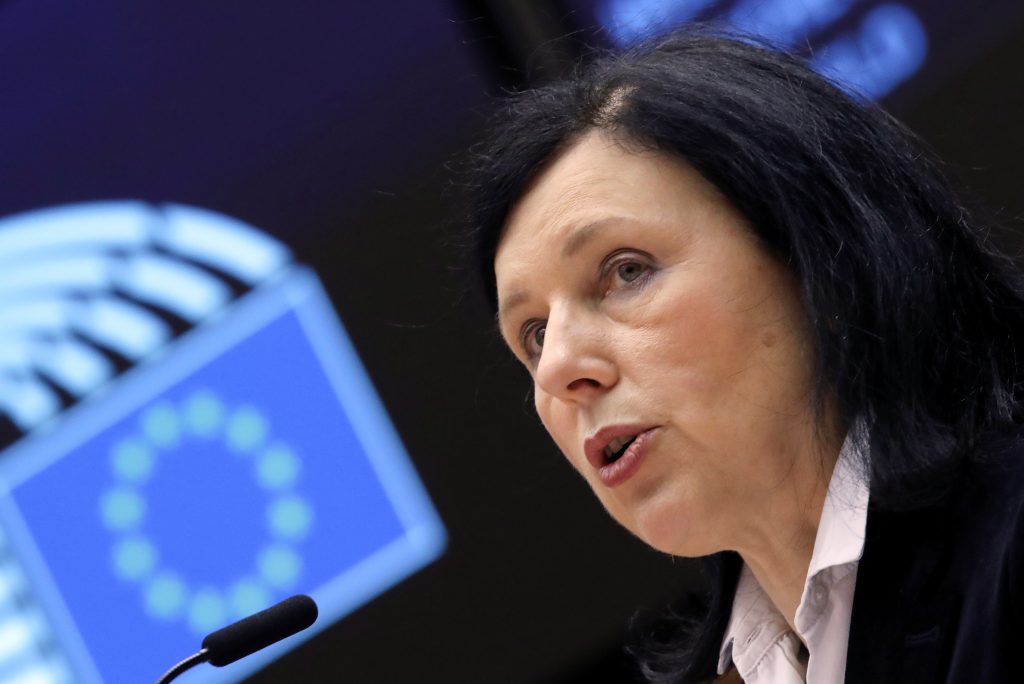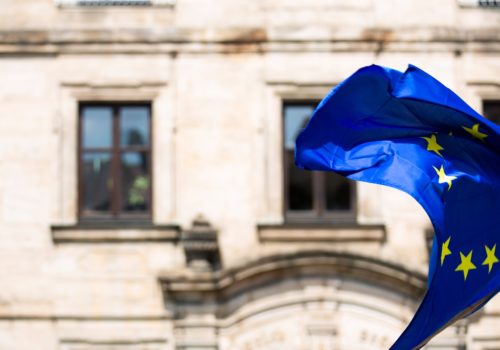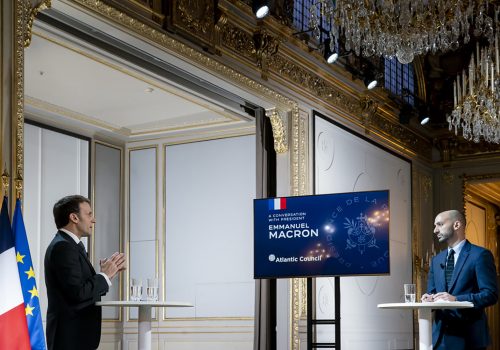The challenges of economic upheaval and threats posed by China and Russia, common to both the European Union (EU) and the United States, are increasing the urgency on both sides of the Atlantic of proving to citizens that democracy is the ticket to a better life—a notion that is no longer a given, according to Věra Jourová, vice-president for values and transparency at the European Commission, and US Senator Chris Murphy (D-CT). Doing so will require a more robust social-safety net, Murphy argued, along with an aggressive defense against misinformation, Jourová said.
Jourová and Murphy were speaking at the Atlantic Council’s EU-US Future Forum during a session moderated by Fran Burwell, a distinguished fellow at the Council’s Europe Center, on how to defend democracy in turbulent times.
Below are some of the key takeaways from the conversation.
What an alliance of democracies can achieve
- US President Joe Biden has proposed a summit for democracy this year in part to counter the influence of China’s autocratic model. More international cooperation is essential, Jourová said, given that “there is plenty of work [to do] on both sides of the Atlantic to convince the people that democracy can deliver a reasonably good life.”
- To Murphy, that is an argument for the ambitious plans that Biden and Democrats in Congress are pursuing to pump some six trillion dollars into the economy, paid for in part by higher taxes on the wealthy. What’s needed is a “conversation about how to lift our citizenry up together, as a mechanism to defend the ability of democracy to deliver real economic mobility,” Murphy said.
- Murphy added that the EU and United States should also aim to “embolden democratic movements and reform communities in countries where the space for political dissent is narrow,” in the interest of promoting both economic opportunity and good governance.
Careful digital regulation
- Jourová, who helped craft Europe’s General Data Protection Regulation, said more “proportionate” regulation of the online space is critical to protecting democracies from the meddling of Russia and China in particular. The European Commission has proposed a pair of new laws, the Digital Services Act and the Digital Marketing Act, to increase transparency and fight disinformation.
- Jourová, who herself was recently barred from entering Russia in retaliation for EU sanctions against Russian officials, added: “We are considering introducing sanctions against the foreign producers of disinformation.”
- But Jourová, who grew up behind the Iron Curtain in Czechoslovakia, also noted that she’s particularly wary of online censorship. To that end, she wants the EU to support quality journalism “by means of different funding programs” and through legislation.
- Murphy doesn’t see the need for a heavy government role in regulating social media beyond mandating more disclosure of who’s paying for online messages. “Many of the decisions are going to have to be made by the companies themselves,” Murphy said. “They’re going to have to decide that they want to be part of the solution.” But he criticized Facebook’s recent decision to temporarily halt all political ads as an over-the-top solution that could choke off voices and funding to candidates who aren’t personally wealthy or politically connected.
The legacy of the Capitol attack
- Former US President Donald Trump’s popularity as someone who wanted “to set the existing system on fire” should be a reminder of democracy’s shortcomings, Murphy said. Trump supporters believe “the elites have corrupted American government and they want something fundamentally different,” said Murphy, who was evacuated from the Senate chamber during the January 6 attack on the US Capitol. “If we don’t respond by significantly changing the balance of power, then we will be perpetually under threat with respect to very unstable behaviors like we saw on the 6th.”
- Jourová described January 6 as a “lesson” for Europe. “We really need to keep the society stable,” she said. And “I don’t know any better system than a democratic system where people are heard.”
Watch the event
Daniel Malloy is the deputy managing editor at the Atlantic Council.
Further reading
Image: EU Commissioner for Values and Transparency Věra Jourová addresses the EU Parliament in Brussels, Belgium, on March 25, 2021. Photo by Yves Herman/Pool via Reuters.



